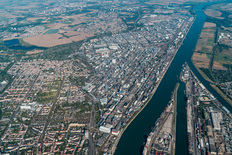- Investment in the new plant is a mid-double-digit million-euro amount.
- The plant will produce sodium methylate and potassium methylate.
- The facility will replace the existing one and start in the second half of 2027.
- The new plant complements the expansion in Guaratinguetá, Brazil.

Investment and Production
BASF is investing a mid-double-digit million-euro amount in a new alcoholates plant at its Ludwigshafen site in Germany. This facility will produce sodium methylate and potassium methylate, essential chemicals for biodiesel production and pharmaceutical and agricultural applications. The new plant will utilize state-of-the-art technology and is set to replace the existing production facility in Ludwigshafen, with operations expected to commence in the second half of 2027.
Strategic Importance
The investment underscores the strategic importance of the Ludwigshafen site for BASF, as it aims to enhance competitiveness in a global market environment. The new plant is part of BASF's broader strategy to drive site transformation and create long-term value. The facility will support the growing market for life science products and the continuous demand for biodiesel, ensuring BASF remains a reliable supplier of high-quality alcoholates.
Global Integration
The new Ludwigshafen plant complements BASF's recent expansion of sodium methylate production in Guaratinguetá, Brazil. This global integration of production facilities highlights BASF's commitment to maintaining a robust supply chain and meeting the needs of various industries worldwide. Alcoholates produced at these sites serve as catalysts and reactants, primarily in biodiesel, pharmaceutical, and agricultural applications.

